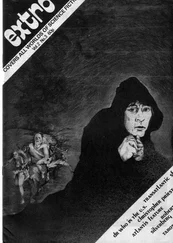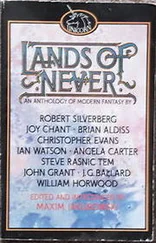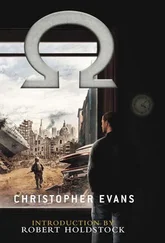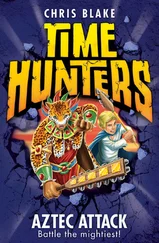Christopher Evans
AZTEC CENTURY


In the last years of the twentieth century (as Wells might have put it), Gollancz, Britain’s oldest and most distinguished science fiction imprint, created the SF and Fantasy Masterworks series. Dedicated to re-publishing the English language’s finest works of SF and Fantasy, most of which were languishing out of print at the time, they were – and remain – landmark lists, consummately fulfilling the original mission statement:
‘SF MASTERWORKS is a library of the greatest SF ever written, chosen with the help of today’s leading SF writers and editors. These books show that genuinely innovative SF is as exciting today as when it was first written.’
Now, as we move inexorably into the twenty-first century, we are delighted to be widening our remit even more. The realities of commercial publishing are such that vast troves of classic SF & Fantasy are almost certainly destined never again to see print. Until very recently, this meant that anyone interested in reading any of these books would have been confined to scouring second-hand bookshops. The advent of digital publishing has changed that paradigm for ever.
The technology now exists to enable us to make available, for the first time, the entire backlists of an incredibly wide range of classic and modern SF and fantasy authors. Our plan is, at its simplest, to use this technology to build on the success of the SF and Fantasy Masterworks series and to go even further.
Welcome to the new home of Science Fiction & Fantasy. Welcome to the most comprehensive electronic library of classic SFF titles ever assembled.
Welcome to the SF Gateway.
In my dreams, I dream of Aztecs…
…and wake to find myself here, alone with my ruined sister, lost not only to history but to memory itself .
We have an old stone farmhouse, my sister and I, secluded in the same Welsh valley where our story truly began – and yet it is not the same valley, at least not to me. We live quietly, seeing only the local man who brings our provisions from the town. He is cheerful but inquisitive, and I mistrust him greatly. No one else disturbs our solitude. Essentially I am alone, and when my sister’s needs have been attended to each day, I spend hours at the study window, staring down the valley .
Dreaming .
Last week I had notebooks and pens delivered with our groceries. Today, another day of rain like so many here, I intend to begin writing our story. To what purpose I’m not sure. For others to read so that they can marvel or scorn? To record history, exorcize demons, cool the fires of memory? I can’t honestly say it’s for any of these reasons but rather to fill up the empty hours and so give myself purpose and meaning .
PART ONE
The House of Sorrow
In those thousand days of our first exile, my dreams were always of London burning. Although I was twenty-one and already married at the time of the invasion, dreaming, I became a child again, a young girl running along the palace corridors, passing tall windows where I glimpsed the night sky full of the enemy’s luminous golden ships. They hovered and darted, raining bright fire down on the city. I was confused and terrified, desperately seeking my father.
Finally I burst into his council chamber, where he sat at the head of a long gleaming table, my brother Richard on his lap, a child like myself. The silence made me halt, see the grimness in everyone’s face. I ran to my father’s side, and he embraced me. He wore a dark suit and a white open-necked shirt; his face was grey with exhaustion. He kissed me on the forehead and shook his head sadly. Then adult hands took me, dragging me away, through halls and down stairways and out into the fiery night. I was still screaming, my eyes flooded with tears, when they bundled me aboard the carrier, where my nanny sat with my sister Victoria, an infant asleep in her lap.
The true circumstances of our escape were more prosaic. When the attack began, Alex and I were at my family home in Marlborough, supervising the storage of art treasures in the vaults. We were evacuated by night, first to one of our estates near Okehampton, where Victoria joined us, and then by various misadventures to the Welsh borders, where our carrier ran out of fuel. We made an emergency landing near Monmouth and were rescued by a ragtag group of Welsh loyalists, who promptly abandoned us in the Sirhowy valley, retreating into mid-Wales with most of their countryfolk as the Aztec armies advanced rapidly northwards from their bridgeheads at London and Southampton.
We took refuge in a deserted mansion house, expecting imminent capture. There were only twelve of us, and the radio bulletins of the next several days were confused and alarming. London was said to have been laid waste by firestorms; enemy forces had already advanced to Nottingham and Bristol; a transporter carrying my cousin Margaret from St Petersburg had been shot down over the Baltic; my father and brother were reported dead after the palace had been stormed.
None of these stories proved entirely true, except that London had fallen and the Aztecs were making rapid gains. Margaret remained safely in Moscow with Tsar Mikhail, and my father and brother had been captured rather than killed. It was a measure of our beleaguered state of mind that we greeted such news with a relief bordering on joy.
As it turned out, we avoided capture, largely because organized resistance to the invasion collapsed within a matter of weeks. The Aztecs halted their advance after consolidating their positions north to the Tees and west to the Severn and Exe. Our armies surrendered and a truce was signed. Not long afterwards, Nauhyotl, a cousin of the Emperor Motecuhzoma, was installed in London as governor. The occupation of England was complete.
Three years passed.
On that final morning in Wales, I woke from my dreams to find myself alone in bed. Alex rose early most mornings to monitor radio transmissions on the equipment we had salvaged from the transporter.
The grandfather clock beside the door said nine thirty. Had I slept so long? I still felt weary, and there was a sour taste in my mouth.
The water in the bathroom came out in a lukewarm dribble. Dressed in a sweater and jeans – clothes scavenged from the deserted town of Tredegar further up the valley – I crossed the landing and noticed that the door to Victoria’s bedroom was open a crack.
My sister lay asleep in a swirl of sheets, blonde hair splayed on the pillow, the room ripe with her body heat. The bed was utterly unkempt, as if she had also been wrestling with disturbing dreams. She was three years younger than I, and had hated every moment of our exile.
Downstairs, porridge and coffee were simmering on the wood-fired stove, and the sink was full of breakfast dishes. We grew oats, barley and root vegetables in the surrounding fields, and had rounded up chickens, three cows and a flock of sheep from the hillsides after our arrival. We supplemented our diet with tinned goods from the shops in Tredegar which had escaped looting before the town was abandoned during the mass retreat into mid-Wales. There, in the empty heartlands of their nation, the Welsh believed themselves safe from further Aztec encroachment.
My stomach felt leaden and I could not face breakfast. Cradling a mug of coffee, I stood at the window, watching Thomas and Sarah at work in the greenhouse. Both had been staff in our household before the invasion, and Sarah had miscarried a baby the previous summer. It would have been the first child born here, and everyone had shared her loss.
Читать дальше














